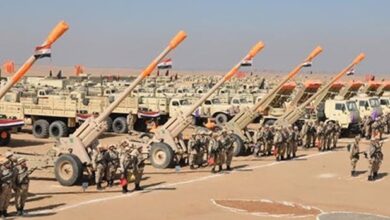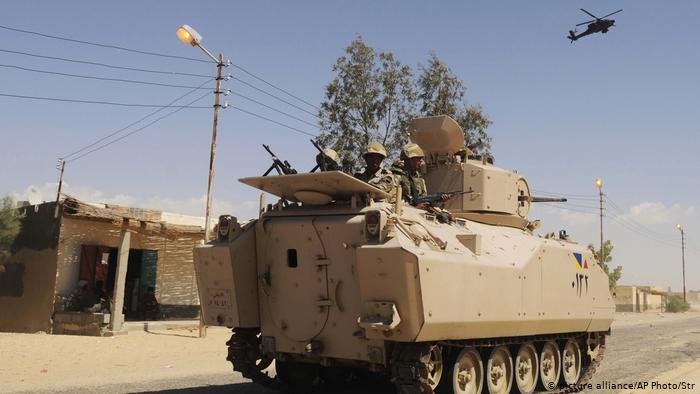Presidential candidates should not grandstand about canceling Egypt’s peace treaty with Israel or removing an Israeli military memorial in Sinai, a former military leader has said amid mounting anti-Israel sentiment in the country’s presidential campaigns.
Former military operations head Abdel Moneim Saeed called the candidates’ recent comments attempts to gain popularity that do not help the country.
It is unclear which presidential candidates have discussed removing the memorial.
In April, the armed forces placed Dayan’s Rock, the Israeli war memorial in Sinai, under tight security, using armored vehicles and earth mounds to protect it. Activists have called for a rally Wednesday during which they would paint the rock with the colors of the Egyptian flag.
Israel established the memorial in the Sinai city of Sheikh Zuwayed at the site of an Israeli helicopter crash during its occupation of the peninsula, which lasted until the signing of the peace treaty between Egypt and Israel.
Names of those killed in the crash are written on the rock, which was sculptured in the shape of a map of present-day Israel and the Palestinian territories. The memorial was named after Israeli politician and military leader Moshe Dayan, who ordered its construction.
In a TV interview Tuesday morning, Saeed said preserving the memorial was one of the provisions of the Egyptian-Israeli peace treaty, and that in turn Israel allowed two similar memorials for Egyptian martyrs to be built in two villages near the Israeli city of Jaffa. Saeed said the two memorials still stand in Israel today.
An article of the peace treaty titled “Respect for War Memorials” says that each party should preserve war memorials built in memory of the soldiers of the other party, “namely those erected by Egypt in Israel,” and should permit access to the monuments.
Saeed said the removal of the monument would cause Israel to complain about the issue in international forums, especially because the United Nations ratified the treaty.
A one-sided cancellation of any or all of its provisions could lead to war and would turn international public opinion against Egypt, which would negatively affect the nation, Saeed said.
Three memorials are located in the city of El Alamein for German, Italian and British troops that fell during World War II. The memorials and private visits by victims’ families in October each year do not violate Egypt’s sovereignty, because it is an international humanitarian tradition to commemorate war victims, Saeed said.
Any unjustified escalation of the political or military situation in Sinai would have serious implications for everyone involved, he said, adding that although Egypt’s armed forces are always ready to protect Egyptian soil, any irresponsible decisions or action would put the country and its people at risk.
Saeed called on Egyptian voters not to be fooled by presidential candidates’ fiery statements, saying there is a huge difference between making promises in the media and actually fulfilling them.
Israel has recently been a heated topic. The front-runners have emphasized that they will maintain a different Israeli policy from the regime of former President Hosni Mubarak, whom they accuse of being too supportive of the Jewish state.
Saeed went on to say that the dispersal of the Egyptian armed forces throughout the country following the 25 January revolution has not detracted from its power to protect the borders.




